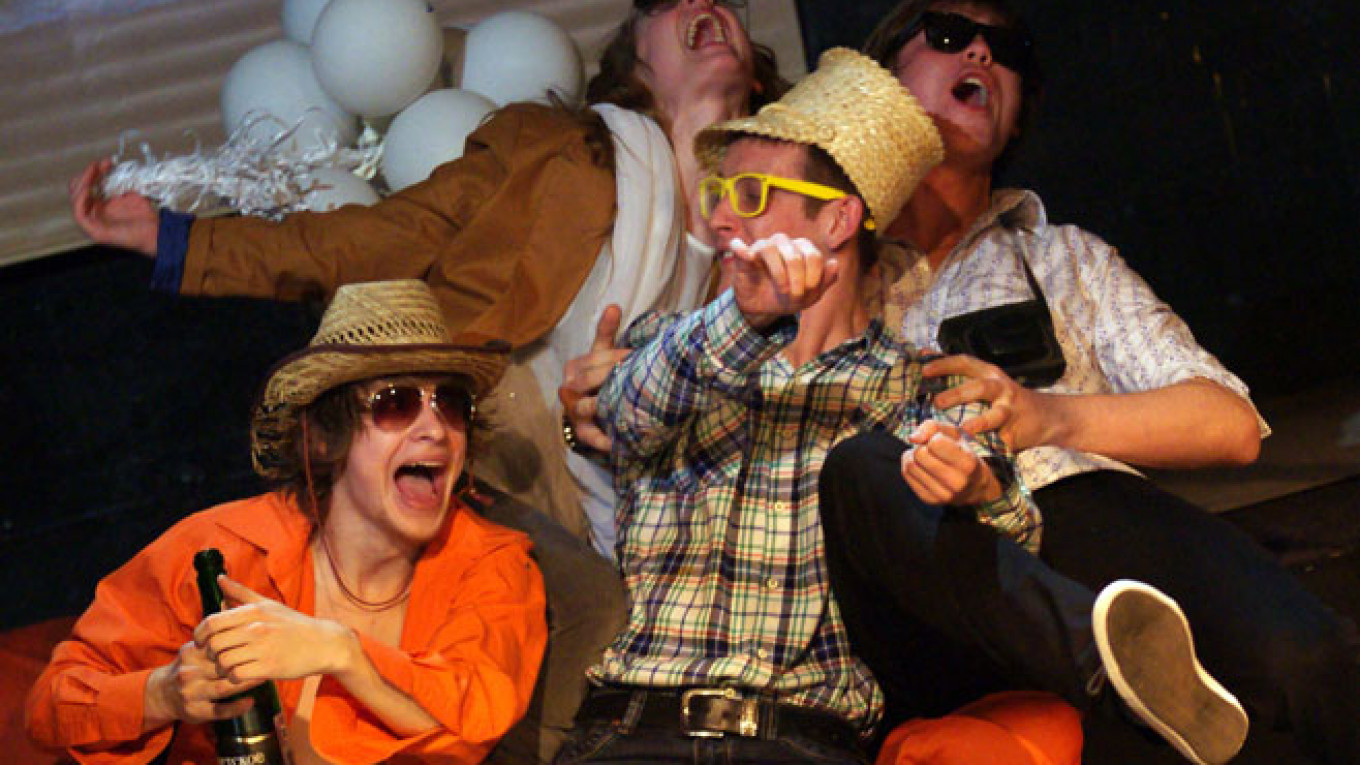“Plus ca change,” the French say, “plus c’est la meme chose.” The more things change, the more they stay the same.
It’s a great phrase. I love it. It’s French. It sounds cool. And sometimes it’s true. But it’s not always true.
I know that because I recently took in Yelena Butenko-Raikina’s production of Alexei Arbuzov’s “Game Over” at the Satirikon Theater. In fact, this is Arbuzov’s “Cruel Games” in disguise, a play written in the late 1970s and that had significance resonance in its time. It was staged in dozens of theaters, including Moscow’s Lenkom and Leningrad’s Bolshoi Drama Theater.
It is always interesting to see how major Soviet works of art hold up in a new historical and social era. Huge numbers of novels, plays, poems and paintings have fallen by the wayside as the world and Russia have transformed and moved forward. Much less, as is to be expected, has lasted.
Based on this production, at least, I have doubts as to whether Arbuzov’s play has much of a future. Although its young characters are acted vividly by the Satirikon cast, I came away with the sensation that things have changed significantly since this play was written, and that they are no longer the same at all.
The concerns of Arbuzov’s characters, their references, their language and the neatly packed, but rather contrived structure of the play that allows us to jump back and forth between Moscow and Tyumen, have a distinctly old-fashioned feel. Several of the characters’ occupations — an avant-garde painter, an athlete, a worker, a doctor and a couple of geologists — represent that array of social categories that many writers of less talent than Arbuzov would punch in and use automatically, knowing that they suited well the proper cliches of the era. Still, this is a tale of misfits and misguided love, and that, certainly, will always be timely.
Kai (Nikita Smolyaninov) is a gloomy artist, who doubts he is an artist at all, and he rooms with the dashing Nikita (Ilya Deniskin) and the down-to-earth Terenty (Timur Lyubimsky). All of them, at 20, are still wet behind the ears but full of energy, self-importance and relatively comfortable rebelliousness. Their routine is shattered when Nelya (Darya Ursulyak), a young woman of 19, barges in and declares she will crash with them because she has no place else to go.
Nelya ties together the various strands of Arbuzov’s tale.
Rejected romantically by Nikita in Moscow, Nelya will go live as a housekeeper with Misha Zemtsov (Alexei Koryakov) and his straying wife Masha (Anna Zdor) in Tyumen, where she will fall for Misha. When Misha dies in a helicopter accident, Nelya abducts the couple’s child and uses it to taunt Nikita by refusing to tell him whether he is the father or not.
Everyone’s life is up in the air. People are unsure of themselves, they don’t know their place in the world, they use each other, often cruelly, in order to test their own strengths and weaknesses. The sadness that is attached to the characters’ tormented introspection is echoed in the frequent driving rainstorms that Arbuzov sends to accompany so many of the scenes.
Designer Anzhelika Bazhina set the action in an open area broken into several smaller spaces and three different levels. Giving a nod to the schooldays that many of the characters only recently left behind, she also supplied a chalkboard on which the actors write the city and time of year in which each scene takes place.
Ursulyak’s Nelya is the emotional center of the production. She most of all appears to feel the deepest and to think most often. As lost as she may be, and whatever bad choices she makes, she most resembles someone who may emerge from the trials of her youth with her complex personality intact.
“Game Over” is a dynamic, fast-paced look at people — sometimes youngsters, sometimes adults — attempting to grow up as best they can. But the world they inhabit and many of the problems they face seem to have come back to us from another time and a now-alien social sensibility. Arbuzov’s play looks more like a snapshot of the past than a portrait of people we recognize today.
“Game Over” plays July 16 at 7:30 p.m. at the Satirikon Theater, located at 8 Sheremetyevskaya Ulitsa. Metro Marina Roshcha. Tel. 495-689-7844. satirikon.ru. Running time: 3 hours.
A Message from The Moscow Times:
Dear readers,
We are facing unprecedented challenges. Russia's Prosecutor General's Office has designated The Moscow Times as an "undesirable" organization, criminalizing our work and putting our staff at risk of prosecution. This follows our earlier unjust labeling as a "foreign agent."
These actions are direct attempts to silence independent journalism in Russia. The authorities claim our work "discredits the decisions of the Russian leadership." We see things differently: we strive to provide accurate, unbiased reporting on Russia.
We, the journalists of The Moscow Times, refuse to be silenced. But to continue our work, we need your help.
Your support, no matter how small, makes a world of difference. If you can, please support us monthly starting from just $2. It's quick to set up, and every contribution makes a significant impact.
By supporting The Moscow Times, you're defending open, independent journalism in the face of repression. Thank you for standing with us.
Remind me later.







